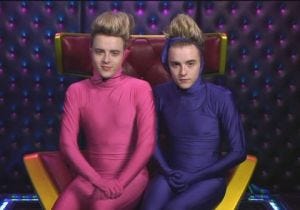Celebrity Big Brother 2011 | Cinema Year One
What do The Irishman (2019), An Elephant Sitting Still (2018), and Celebrity Big Brother Season 8 (2011) all have in common? Very little beyond their length and challenge of emotional endurance. While the former pair of critically acclaimed auteur films will undoubtedly forever be referred to in their directors’ canons, …
Keep reading with a 7-day free trial
Subscribe to Cinema Year Zero to keep reading this post and get 7 days of free access to the full post archives.





